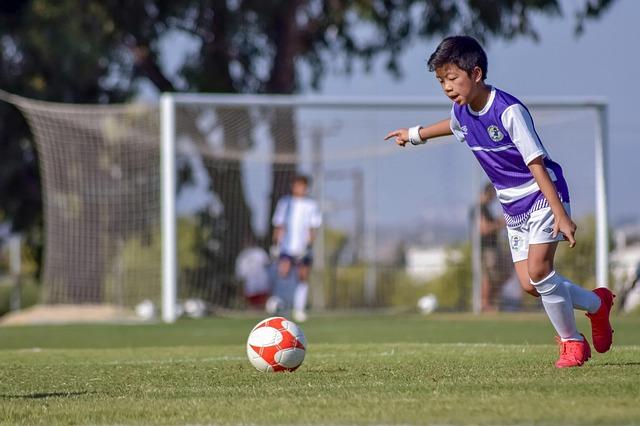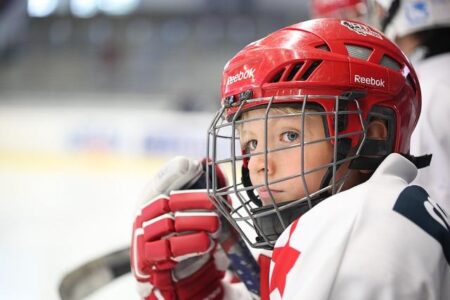As parents weigh the benefits and risks of organized sports for their children, a pressing question arises: When is the right time for kids to start playing? Recent research sheds new light on the ideal age to introduce young athletes to competitive and recreational sports, balancing physical development, psychological readiness, and long-term health outcomes. In this article, The Everymom explores the latest findings to help families make informed decisions about their children’s sporting journeys.
Understanding the Optimal Age for Introducing Sports to Children
Experts agree that there isn’t a one-size-fits-all age to begin sports, but early exposure-around ages 3 to 5-can be beneficial when approached correctly. At this stage, children primarily engage in play-based activities that develop fundamental motor skills such as running, jumping, and throwing. This focus on fun and coordination rather than competition helps build a positive association with physical activity. Pediatricians emphasize creating an environment where children feel supported without pressure, nurturing a lifelong passion for movement.
Introducing organized sports too early or with excessive intensity can lead to burnout or injury, so balancing enthusiasm with age-appropriate expectations is critical. Research highlights key factors parents and coaches should consider:
- Prioritizing skill development over winning
- Encouraging diverse activities to promote overall athleticism
- Monitoring for signs of stress or fatigue
- Ensuring inclusive and supportive coaching styles
| Age Group | Recommended Focus | Ideal Activity Types |
|---|---|---|
| 3-5 years | Basic motor skills | Free play, simple games |
| 6-9 years | Skill introduction and variety | Non-competitive team sports, swimming |
| 10+ years | Skill refinement and teamwork | Organized sports, leagues |
The Benefits of Early Physical Activity on Child Development
Introducing physical activity at a young age plays a crucial role in shaping a child’s overall development. Research consistently shows that early engagement in sports and play enhances motor skills, coordination, and balance, laying a foundation for more complex physical challenges later in life. Beyond physical advantages, kids who start moving actively early tend to exhibit improved cognitive abilities, including better focus and problem-solving skills. This boost is linked to increased blood flow and neural connections stimulated by regular exercise, which in turn supports brain growth during these formative years.
Moreover, early participation in physical activities fosters essential social and emotional skills. Children learn teamwork, communication, and empathy through group sports or playful group exercises, which promote confidence and resilience. Consider the following benefits highlighted by multiple studies:
- Enhanced self-esteem through skill mastery and goal achievement
- Improved mood regulation and reduced anxiety levels
- Development of healthy habits that persist into adulthood
- Strengthened family bonding when parents engage alongside kids
| Development Area | Impact of Early Physical Activity |
|---|---|
| Physical | Improved strength, endurance, motor skills |
| Cognitive | Sharpened focus, memory, and decision-making |
| Emotional | Boosted self-confidence, stress relief |
| Social | Better cooperation, empathy, communication |
Balancing Skill Building and Play in Youth Sports Programs
Striking the right balance between skill development and play is essential for fostering a lifelong love of sports among children. Experts emphasize that children under the age of 8 should primarily engage in unstructured play, where creativity and enjoyment take precedence over competitive outcomes. This approach allows young athletes to develop fundamental motor skills and coordination in an organic, pressure-free environment. Structured training sessions can slowly be introduced as kids grow older, but maintaining ample time for free play supports emotional well-being and reduces burnout risks.
Programs that successfully merge skill-building with playful activities employ a variety of strategies to encourage both growth and fun. These include:
- Short practice sessions with varied drills to sustain attention and enthusiasm.
- Games and challenges that promote teamwork without focusing exclusively on winning.
- Encouraging parental involvement to ensure positive reinforcement rather than pressure.
| Age Group | Recommended Focus | Ideal Activity Time |
|---|---|---|
| 4-6 years | Free Play & Basic Movements | 20-30 minutes/day |
| 7-9 years | Introduction to Skills + Play | 30-45 minutes/day |
| 10+ years | Skill Refinement & Team Play | 45-60 minutes/day |
When these elements coexist, children not only acquire important athletic skills but also develop a positive attitude toward physical activity that can last well into adulthood.
Expert Recommendations for Parents Choosing the Right Sporting Activities
Parents often ask how to determine the best sporting activity for their children, and experts emphasize focusing on the child’s interests and developmental readiness rather than rigid age guidelines. Encouraging kids to try a variety of sports without early specialization helps build well-rounded physical skills and prevents burnout. Pediatricians and child development specialists recommend prioritizing fun and social engagement over competition in the early years to lay a foundation for lifelong physical activity.
Key factors to consider include:
- Child’s enthusiasm and willingness to participate
- Physical and emotional maturity appropriate for the sport
- Opportunities for skill development through play rather than pressure
- Availability of supportive, positive coaching environments
- Balanced scheduling that avoids overtraining and fatigue
| Age Range | Recommended Sports | Focus Area |
|---|---|---|
| 3-5 years | Basic movement games, swimming | Motor skills, balance |
| 6-8 years | Soccer, gymnastics, basketball | Coordination, teamwork |
| 9-12 years | Running, baseball, martial arts | Endurance, discipline |
The Way Forward
As research continues to shed light on the optimal age for children to begin organized sports, it becomes clear that a balanced approach-one that considers physical readiness, emotional maturity, and individual interest-is key. While early exposure can foster motor skills and social development, experts caution against pushing kids too soon to avoid burnout and injury. Ultimately, the decision rests with parents and caregivers, guided by the latest findings and a focus on each child’s unique needs. Staying informed and attentive ensures that youth sports remain a positive, healthy experience for the next generation.




